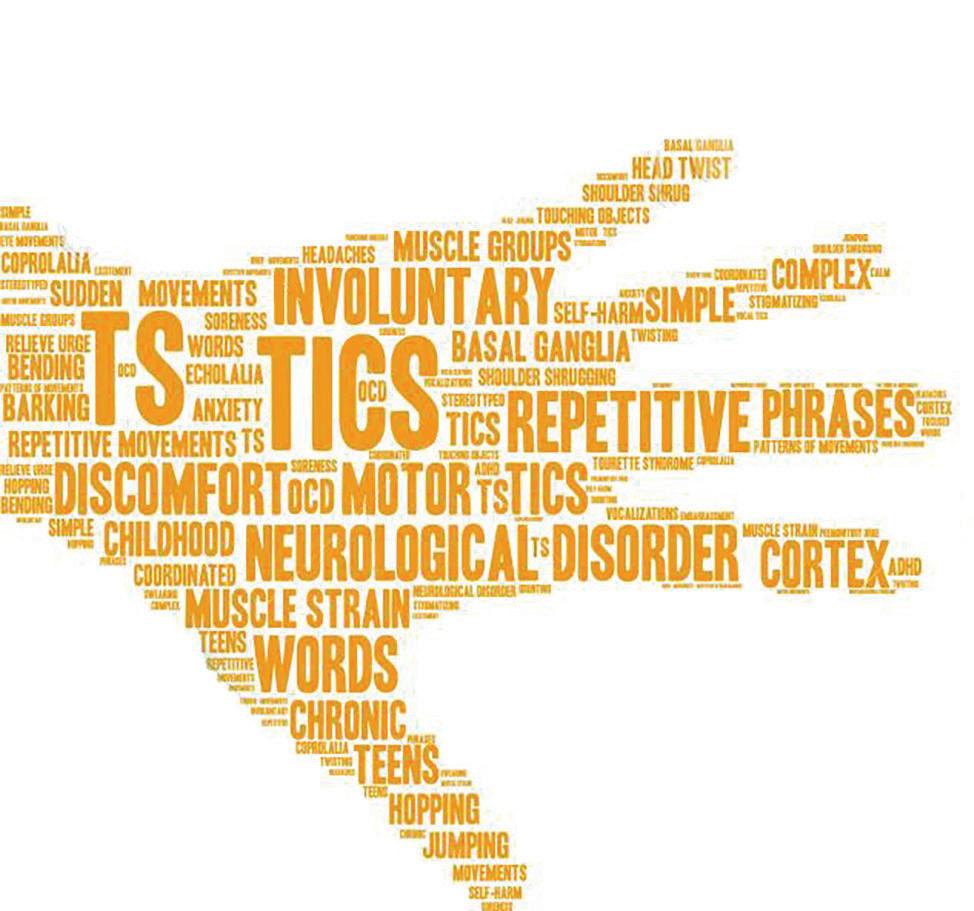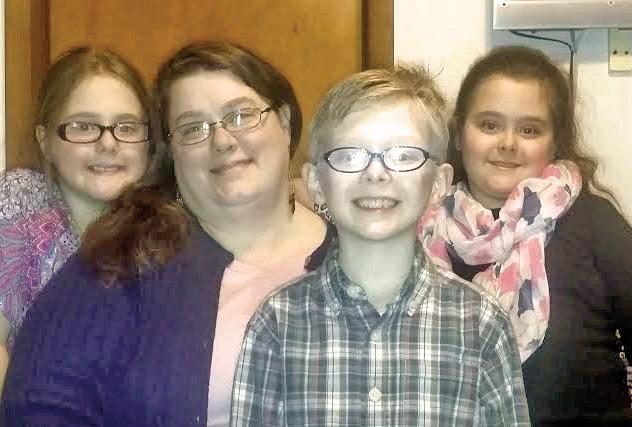
10 minute read
Card games for families
Family friendly card games
All ages will enjoy an easy card game that doesn’t require a special deck.
Advertisement


Family game night is a great way for families to have fun and spend time together. Whether it’s a rainy summer night or a designated device-free evening at home, game night can prove a bonding experience for both parents and children.
If board games have lost some of their luster, parents may want to break out a deck of cards. In such instances, these three family-friendly card games can make for a fun activity.
Crazy eights Crazy eights requires between two and seven players, making it an ideal card game for families. The winner is the first player to discard all of his or her cards. A basic 52-card deck is
Continued on Page 13 used when playing with five or fewer players, while two 52-card decks are used when there are more than five players. When playing with more than two players, each player is initially dealt five cards, and the remaining cards are then placed face down at the center of the table. The game begins when the top card is turned face up. Players can discard their cards by matching the rank or suit with the top card of the discard pile. If they cannot match the rank or suit of the top card and are not holding an eight, players must draw a card from the stockpile.
Players also may play an eight at any time, and when they do, they must declare the suit the

n Card games continued from Page 12
next player must play. The next player can either play that suit or play an eight if they have one. The first player with no cards left is the winner.
Go Fish Go Fish is a great game for young children. To begin, each player is dealt five cards from a 52-card deck (or seven cards if there are three players or less), and the remaining cards are then shared between the players. Players whose turn it is ask another player for his or her cards of a certain face value. For example, a player may ask “Dad, do you have any twos?” Players must ask for a face value they are already holding. If the player has cards of that value, then he or she must hand them all over to the player who asked. If the player has no such cards, the player who asked must draw a card. If it’s not the two the player asked for, the player must keep it and allow the next player to take his or her turn. If the card is a two, the player must show it to the other players and then select another card.
Players who have all four cards of a face value are said to have a “book,” and books must be placed face up in front of the player as they’re accumulated. When all cards have been laid down in books, the player with the most books is the winner.
Old Maid Old Maid can be played with a 52-card deck. In such instances, one card must be added or removed. That leaves one unmatchable card.
At the beginning of the game, the designated dealer deals all of the cards, and some players can end up with more cards than others. Once the cards have been dealt, players look at their hands and discard all pairs, but not three of kind. Each player, beginning with the dealer, offers his or her hand, face-down, to the player to his or her left. The player offered must select a card without seeing which card it is and add it to his or her hand. If the card chosen matches a card the player is holding, then the pair can be discarded. The player who chose a card then offers his or her hand to the player to his or her left, and the game continues in this vein. Players can shuffle their hands before offering them to other players. The game ends when all pairs have been discarded and one player is left holding the unmatchable card, which is referred to as the “Old Maid.”
theSchoolof the ALBANY BERKSHIRE BALLET Madeline Cantarella Culpo, Director
• Ballet
• Pre-Ballet
• Modern
• Pointe
• Pilates
• Jazz
WEEKLY CLASSES DANCE CAMPS DANCE INTENSIVES
admin@schoolofabb.org www.schoolofabb.org
518-426-0660 25 Monroe Street Albany, NY
111382_4
SCAP Early Head Start - Child Care Partnerships (EHS-CCP)

We are a FREEInfant Toddler Program for families who qualify and live in Schenectady County.
We provide: • Free diapers and formula • Nutritious meals and snacks • Family support services • Developmental screenings • Special Education Services (Speech, OT, PT) • Assistance getting health services • Nurturing learning environment
Give us a call today.
518.377.2015 920 Albany St. • Schenectady
OHAV SHALOM CAMP 2020
Ohav Shalom offers the perfect summer camp program for the preschool group!
• Small group sizes • Individualized attention • Water actvities daily
school districts, is a form of free play and provides students with a break from the rigors of learning. n Free play continued from Page 10
In a 2011 article in the American Journal of Play, Peter Gray, Ph.D., a researcher at Boston College, said that “lack of play affects emotional development, leading to the rise of anxiety, depression, and problems of attention and self-control.” Gray also said that without play, “young people fail to acquire the social and emotional skills necessary for healthy psychological development.” Free play also can benefit youngsters in the following ways: n Enables kids to learn dexterity and improve on other strengths. n Fulfills exercise requirements for growing kids. n Helps kids conquer fears and develop confidence. n Establishes natural leadership roles and hierarchy in social groups. n Contributes to emotional well-being by giving children a respite from schedules. n Helps teach self-responsibility, which may translate to better behavior at home and in school.
• Camp groups led by teachers with over 25 years of experience working with preschoolers Camp groups for children ages 18 months – 5 years Morning program from 9:30am – 1:00pm Wrap around child care from 8:00am – 5:00pm Field trips in camp and out • Inside and outside play daily
9 WEEK PROGRAM - Join us for as little as 1 week or for the entire 9 week summer session! SUMMER WEEKLY THEMES: • Under the Sea • Bugs, Bugs, Bugs • Outer Space • Reptiles • Messy Monsters • Lions, Tigers and Bears • Create and Take • Carnival Fun and more... Camp starts on Mon., June 22 – Fri, Aug. 21 *No camp week of July 4 Extended camp days available from 8:00am – 5:00pm Children can attend 3, 4 or 5 days per week *Early Bird Registration: Sign up by May 1st for at least 4 weeks and get a $75.00 DISCOUNT!!!
Triple Threat
parenting triplets in the Capital District
Tourette’s diagnosis brings challenges
One thing I have realized in the past few years is that I am protective, really protective of my family. When other children and some adults make disparaging comments about my family, my kids and my life choices, I will get my back up. And no matter how messy life gets, I know that my family is strong, we love each other and we will always have each other’s backs.
Two of my kids have Tourette’s syndrome. Two of the best kids in the world are dealing with uncontrollable and involuntary vocal tics and physical tics while going through middle school. The two of them are doing everything possible to fit in socially and be part of middle school life.
Those with Tourette’s syndrome draw attention to themselves by the very nature of the disability. The involuntary physical movements and involuntary vocal noises are related to the nervous system, and the key word is involuntary. Individuals with TS cannot control these repetitive movements and unwanted sounds. The harder a person tries to suppress the tics, the worse the tics will get, and the anxiety created by seeing other people’s reactions to this condition makes tics worse. A child dealing with TS in middle school will probably tic up and down the hallway all day long.
Tourette’s can seriously affect a person’s selfesteem and feeling of belonging. Peers in middle school are so kind to one another, especially when classmates are a little different (I’m being very, very sarcastic.). I’ve tried to arm my children with all kinds of information and retorts. One classmate was giving my daughter a hard time about the tics, and she turned around and said, “I’m not being rude, I have Tourette’s.” The classmate’s response was that my daughter should be in a special education class. All three of my children are on the Gold Honor Roll. All three.
There are stereotypes about TS that many of us have seen on television, movies or perpetuated by comedians: the guy screaming obscenities or the woman who tries to by Jennifer Steuer



Tourette’s syndrome, or TS, is an involuntary movement disorder that has affected a number of people including well-known celebrities past and present like Wolfgang Amadeus Mozart, Howie Mandel and Grammy winner Billie Eilish.
Tourette’s diagnosis brings challenges

not being rude, I have Tourette’s.” The classmate’s response sit quietly while her arms and legs flail about. These stereotypes continue when people assume diagnoses of developmental delays, learning disabilities and mental illnesses are automatically part of the TS experience. According to Tourette.org “the disorder is not a mental or psychiatric illness” it is a movement disorder.
I’ve tried to educate myself about Tourette’s because I also believed some of the stereotypes. Tourette’s can be passed on by a dominant gene with a 50 percent chance of passing the gene on to a child (cdc.gov). Sometimes there are clusters of TS within families which does cause a continuation of the age old debate: nature vs. nurture. There is a genetic mutation that has been discovered, however this mutation is found in “a small number of people; this gene provides instruction for making a protein that is active in the brain” (ghr.nlm.nih.gov). There is evidence that even though TS does not cause developmental delays or academic issues, the comorbidity of obsessive-compulsive disorder, attention deficit disorder, anxiety and depression is apparent leading to the age-old question: Which came first?
When I Googled “celebrities with

Tourette’s” there was quite a list, and not just modern-day celebrities, but people from when I was a kid and many other famous folks. One of Harlan’s favorites: Wolfgang Amadeus Mozart! Also on the list are Jewish comedian Pamela Schuller, actor Howie Mandel and Billie Eilish, who won five Grammys this year!
I admit that the diagnosis of Tourette’s took us a little by surprise, but it’s nothing we can’t handle together as a family. Harlan and I love Olivia, Benjamin and Rebecca with every beat of our hearts. Our children are our life and they will always be our squishy, happy little babies even when they are at this sullen tween stage.
Jennifer Steuer is an Albany mom whose busy household includes her husband, Harlan, and 12-yearold triplets Olivia, Benjamin and Rebecca. Follow her on Instagram: jennifersteuer.


Resources and support The Tourette Association of America: 1.888.4.Touret or support@tourette.org To find a local chapter near you, email: Chapters@Tourette.org Facebook: Tourette Association of American Instagram: @touretteassociation Twitter: @TouretteAssn Youtube: Tourette Association of America







